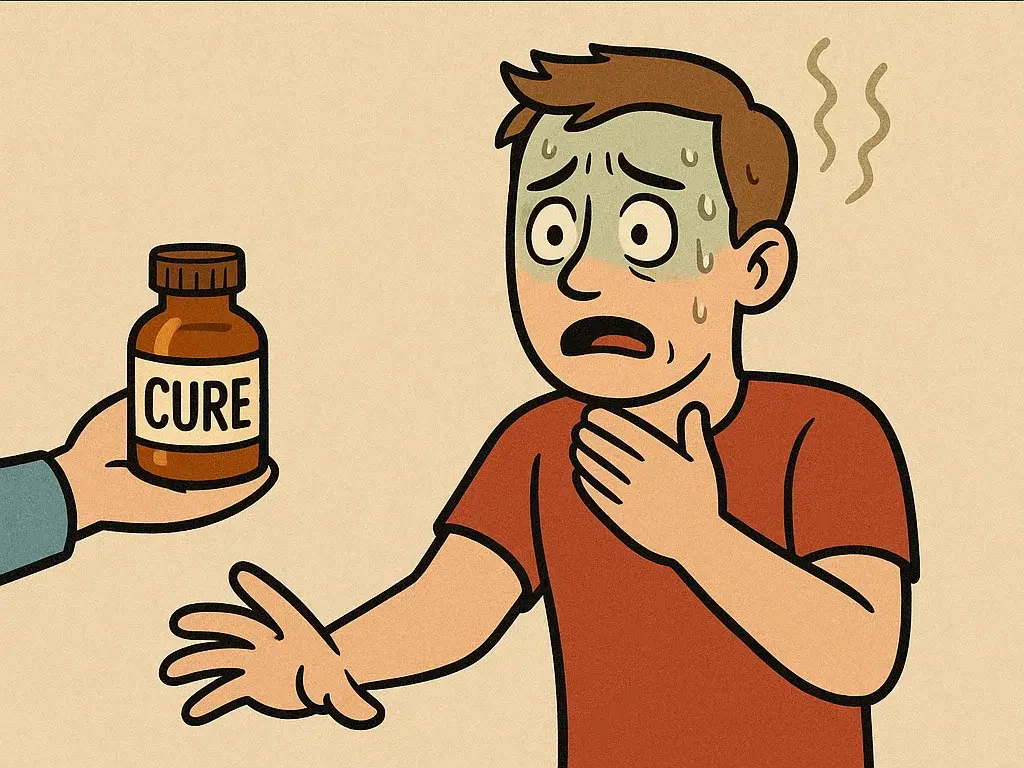Best Allergy Medicine: Your Complete Guide to Staying Sneeze-Free
Introduction to Allergy Relief
Let’s face it—nothing ruins a good day like sneezing fits, itchy eyes, or that oh-so-annoying runny nose. If allergies are your arch-nemesis, the right medicine can feel like a magic wand. But with so many options, how do you know which allergy medicine is the best?
Let’s explore the world of antihistamines, decongestants, nasal sprays, and more to help you breathe easier and feel better every season of the year.

What Are Allergies?
Allergies are your immune system’s over-the-top response to harmless substances like pollen, pet dander, dust mites, or mold. Think of it as your body pressing the panic button when it doesn’t need to.
How Allergy Medicines Work
Allergy medicines work by calming down your immune system’s response. Depending on the type, they either block histamines (the chemical that causes symptoms) or reduce inflammation in your nose and sinuses.
Types of Allergy Medicines
Antihistamines
These are your go-to pills for allergy symptoms like sneezing, itching, and watery eyes.
First-Generation Antihist
These include Benadryl (diphenhydramine). They’re effective but can make you super sleepy. It is best taken before bed.
Second-Generation Antihistamines
More modern options like Claritin (loratadine), Allegra (fexofenadine), and Zyrtec (cetirizine) are non-drowsy and great for daytime use.
Decongestants
Decongestants like Sudafed (pseudoephedrine) can be lifesavers if you’re battling a stuffy nose. They shrink swollen nasal tissues so you can breathe easier—but don’t overdo it, as they can raise blood pressure and cause jitters.
Corticosteroids
Think of these as inflammation busters. Nasal sprays like Flonase and Nasonex reduce swelling and mucus in your nasal passages.
Leukotriene Receptor Antagonists
Montelukast (Singulair) falls into this category. It’s a prescription option that blocks another chemical involved in allergic reactions—perfect for people with asthma and allergies.
Mast Cell Stabilizers
These prevent allergic reactions before they start, and they are great for eye or nose symptoms. Nasalcrom is a standard option.
Immunotherapy (Allergy Shots)
Want a long-term solution? Allergy shots train your immune system to stop overreacting. They’re a time commitment, but they can drastically reduce symptoms over time.

Best Over-the-Counter Allergy Medicines
Top OTC Antihistamines
- Zyrtec (Cetirizine): Fast and powerful but may cause mild drowsiness.
- Allegra (Fexofenadine): Truly non-drowsy and long-lasting.
- Claritin (Loratadine): Great for mild, seasonal symptoms.
Best OTC Decongestants
- Sudafed (Pseudoephedrine): Super effective but requires a pharmacist’s sign-off.
- Afrin (Oxymetazoline): Fast nasal relief—don’t use it for more than 3 days.
Nasal Sprays Worth Trying
- Flonase (Fluticasone): Full-strength nasal steroid for all-day relief.
- Nasacort (Triamcinolone): Gentle on the nose and effective.
Best Prescription Allergy Medicines
Prescription Nasal Sprays
- Nasonex (Mometasone): Strong, fast, and safe for long-term use.
- Dymista: A combo spray for double-barrel relief (antihistamine + steroid).
Stronger Antihistamines
Doctors might prescribe Hydroxyzine, which is potent but sedating—great for nighttime flare-ups.
Prescription Eye Drops
For red, itchy eyes, options like Olopatadine (Pataday) provide targeted relief.
Natural Alternatives to Allergy Medicines
Herbal Remedies
- Butterbur and quercetin are natural antihistamines.
- Always check with a doctor—some herbs can interact with other meds.
Lifestyle Adjustments
Keep windows closed during high pollen seasons, use HEPA filters, and wash bedding regularly.
Nasal Irrigation (Neti Pot)
Rinse away allergens with a saltwater solution—it’s weird but wonderfully effective!
Choosing the Right Allergy Medicine for You
Based on Symptoms
- Itchy eyes? Try antihistamine eye drops.
- Stuffy nose? Go for a nasal steroid or decongestant.
- Sneezing and runny nose? Antihistamines are your friend.
Based on Age
- Kids: Claritin and Zyrtec have kid-friendly versions.
- Older adults: Avoid sedating antihistamines due to fall risk.
Based on Existing Health Conditions
- High blood pressure? Skip oral decongestants.
- Asthma? Consider Singulair or a nasal steroid.
Tips to Maximize Allergy Relief
When to Take Allergy Medicine
Start taking it before symptoms hit—especially during allergy season. Preventive is better than reactive.
Environmental Control Tips
- Vacuum often.
- Use dust-mite-proof covers.
- Shower after being outside to wash away pollen.
Conclusion
Choosing the best allergy medicine doesn’t have to be overwhelming. Whether you’re dealing with seasonal sniffles or year-round allergies, there’s a solution that fits your needs and lifestyle. This guide covers everything from OTC options to prescription powerhouses—and even natural remedies. Take charge, breathe easy, and say goodbye to those tissues!
FAQs
What is the most effective allergy medicine?
It depends on your symptoms, but a second-generation antihistamine like Zyrtec or Allegra works well without drowsiness for most people.
Can I take allergy medicine daily?
Yes, especially non-drowsy antihistamines and nasal sprays. They’re safe for daily, long-term use.
What allergy medicine is safe for kids?
Claritin and Zyrtec offer kid-safe formulations. Always check with your pediatrician.
Are there any side effects to allergy medicine?
Depending on the type, common ones include drowsiness, dry mouth, and jitteriness.
Do natural remedies work for allergies?
They can help, especially with lifestyle changes—but they’re not a one-size-fits-all solution.
Please don’t forget to leave a review.
Learn More: Shocking Allergy Attack! Recognize Allergy Symptoms Faster!



